Ranking the greatest MVP seasons in baseball history: Nos. 80-61
Throughout the month of January, a cast of editors from theScore will share their rankings of the greatest teams, performances, pitchers, and position players in baseball history. This list focuses on the greatest MVP seasons of all time (*: led AL/NL; major-league leaders in italics):
100-81 | 80-61 | 60-41 | 40-21 | 20-1
Voter list:
- James Bisson, National Sports Editor
- Brandon Wile, Senior MLB Editor
- Jonah Birenbaum, MLB News Editor
- Michael Bradburn, MLB News Editor
- Jason Wilson, MLB News Editor
- Bryan Mcwilliam, MLB News Editor
- Simon Sharkey-Gotlieb, MLB News Editor
- Dylan Perego, News Editor
- Josh Wegman, News Editor
80. Kris Bryant, Chicago Cubs (2016)
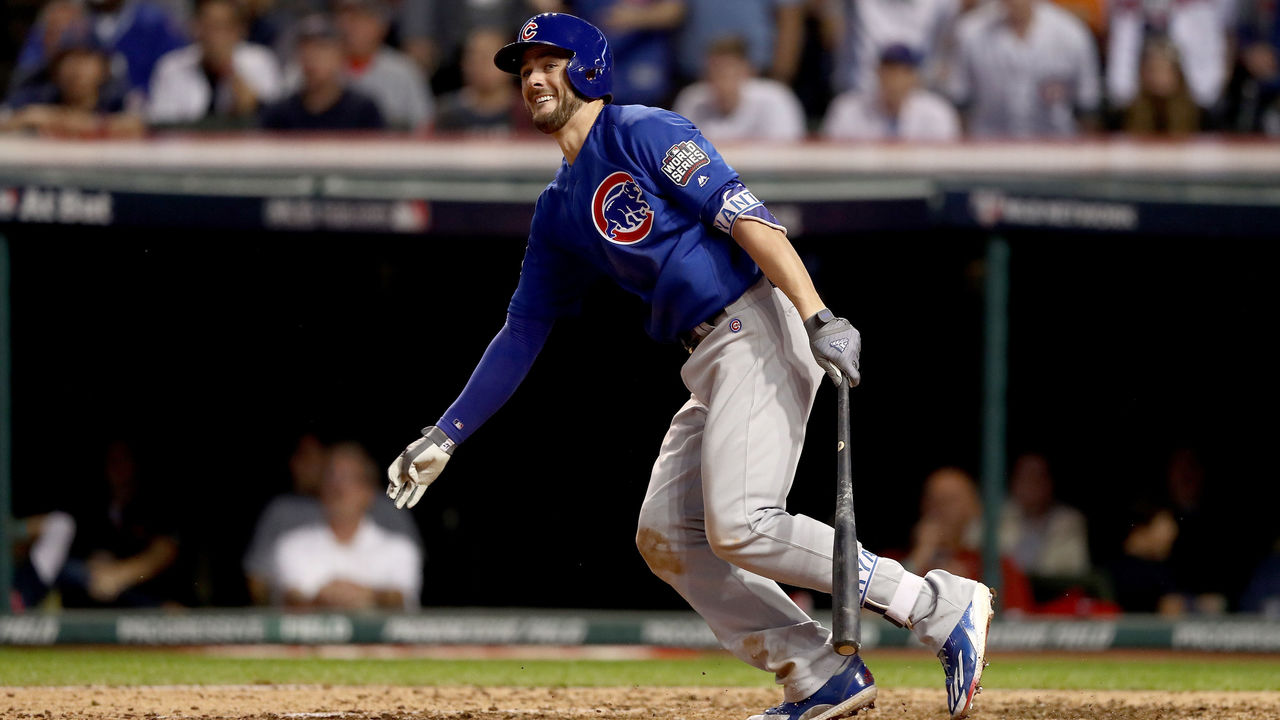
| AVG | R | HR | RBI | SB | OPS |
|---|---|---|---|---|---|
| .292 | 121* | 39 | 102 | 8 | .939 |
History was made in 2016, but not for the reason you think. Unlike other multi-positional MVPs who were awful defensively (or even DH'ing half the time) in their MVP seasons, Bryant's stellar offense in 2016 was complemented by over 50 innings played at four different positions - and he was a plus defender at all four. Kris Bryant: the first and only true utility player to win an MVP. -- Sharkey-Gotlieb
79. Mike Trout, Los Angeles Angels (2014)
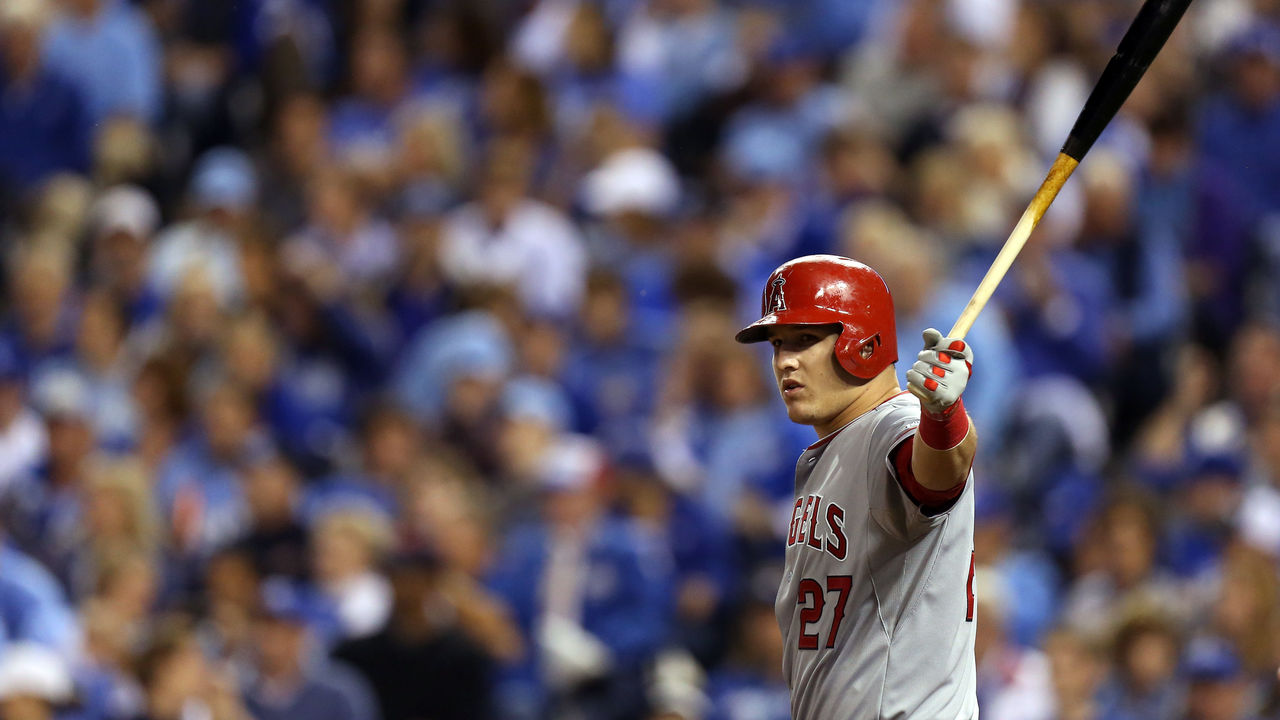
| AVG | R | HR | RBI | SB | OPS |
|---|---|---|---|---|---|
| .287 | 115* | 36 | 111* | 16 | .939 |
In what might be Trout’s least MVP-worthy season, he was still a force. In hindsight, it seems like a season of adjustment. He added a bit more pop while taking a step back on the basepaths, and struck out at the highest clip of his career. Even adjusting on the fly, Trout was the best hitter in the game. Incredible. -- Wilson
78. Hank Aaron, Milwaukee Braves (1957)
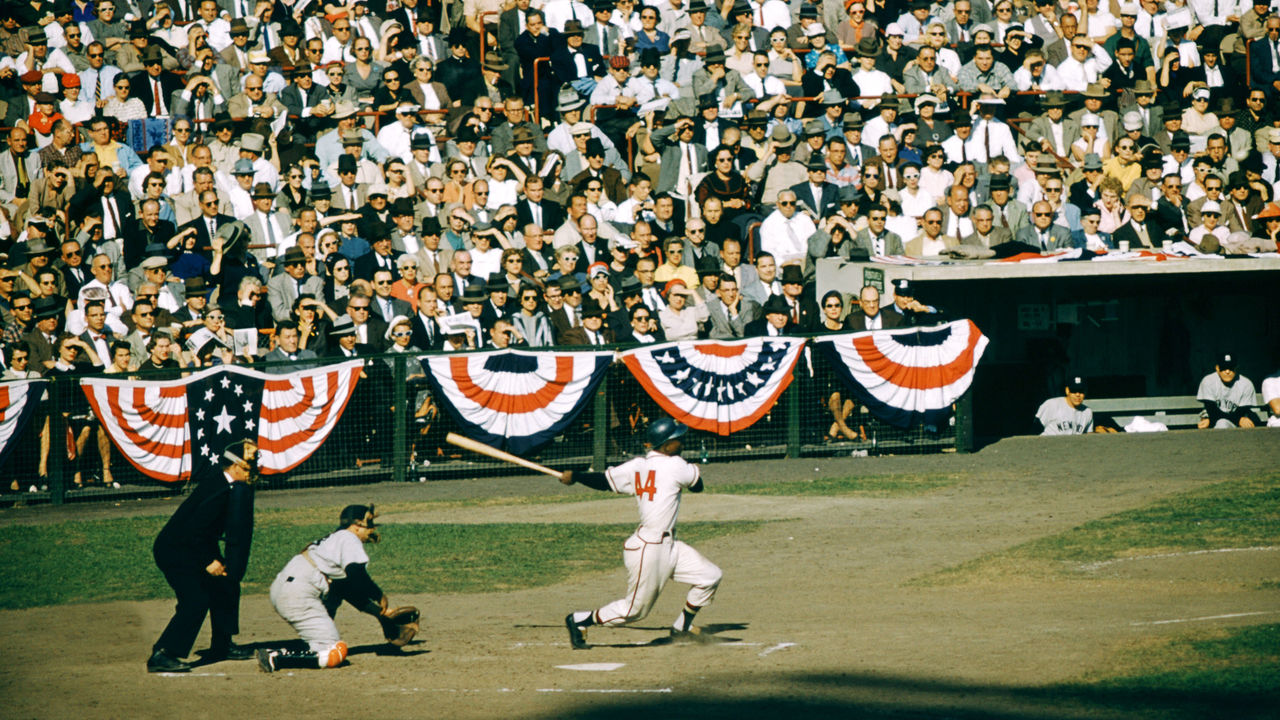
| AVG | R | HR | RBI | SB | OPS |
|---|---|---|---|---|---|
| .322 | 118* | 44* | 132* | 1 | .978 |
1957 was a real coming-out party for Hammerin' Hank, as his 44 homers would hold up as the third-best of his career, and his 132 RBIs were the most he would ever record. -- Wegman
77. Hank Greenberg, Detroit Tigers (1940)
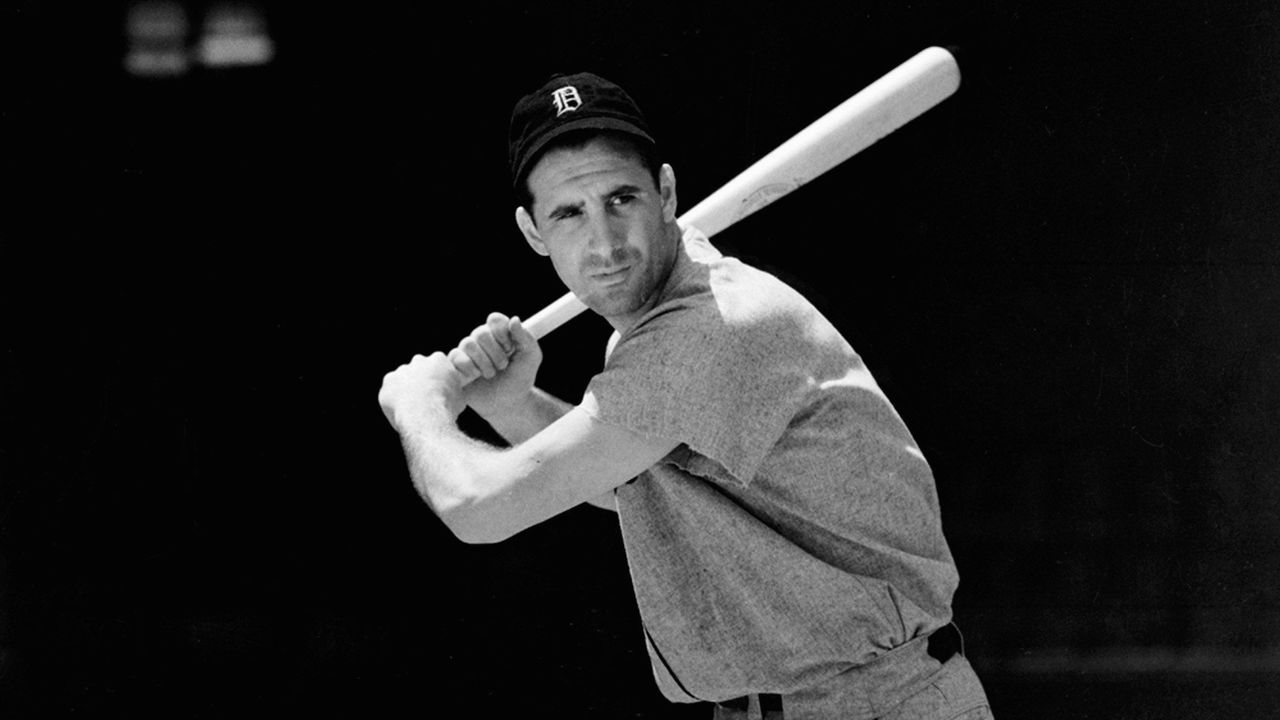
| AVG | R | HR | RBI | SB | OPS |
|---|---|---|---|---|---|
| .340 | 129 | 41* | 150* | 6 | 1.103* |
Not only did Greenberg put on a power display all season long, collecting 99 extra-base hits, but he also handled the bat extremely well, walking more times than he struck out. -- Wegman
76. Frank Thomas, Chicago White Sox (1994)
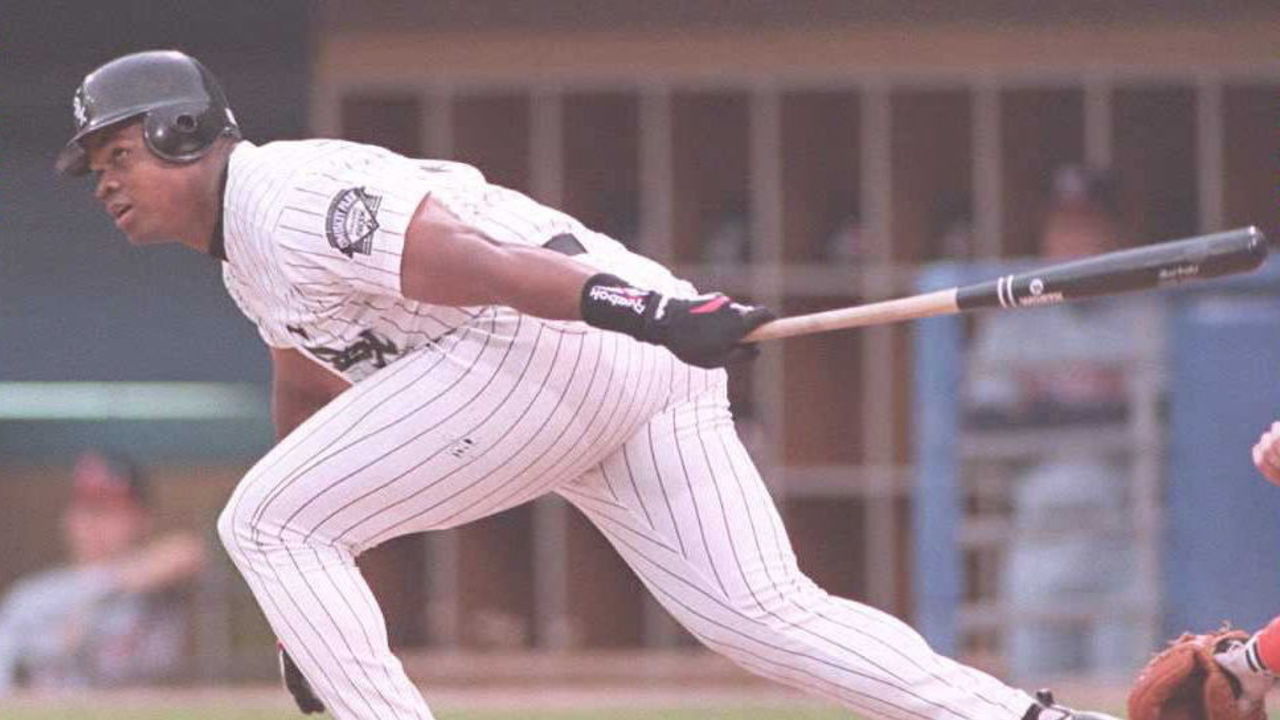
| AVG | R | HR | RBI | SB | OPS |
|---|---|---|---|---|---|
| .353 | 106* | 38 | 101 | 2 | 1.217* |
One projection of Thomas' second straight MVP season over a full 162 games suggests the 1994 strike may have cost him a historic and literally unheard of stat line. Alas, the strike happened, and - like so much of baseball's lost '94 season - we can only wonder where this one would rank if Thomas had been able to finish what he started. Not bad for 113 games, though. -- Sharkey-Gotlieb
75. Albert Pujols, St. Louis Cardinals (2005)
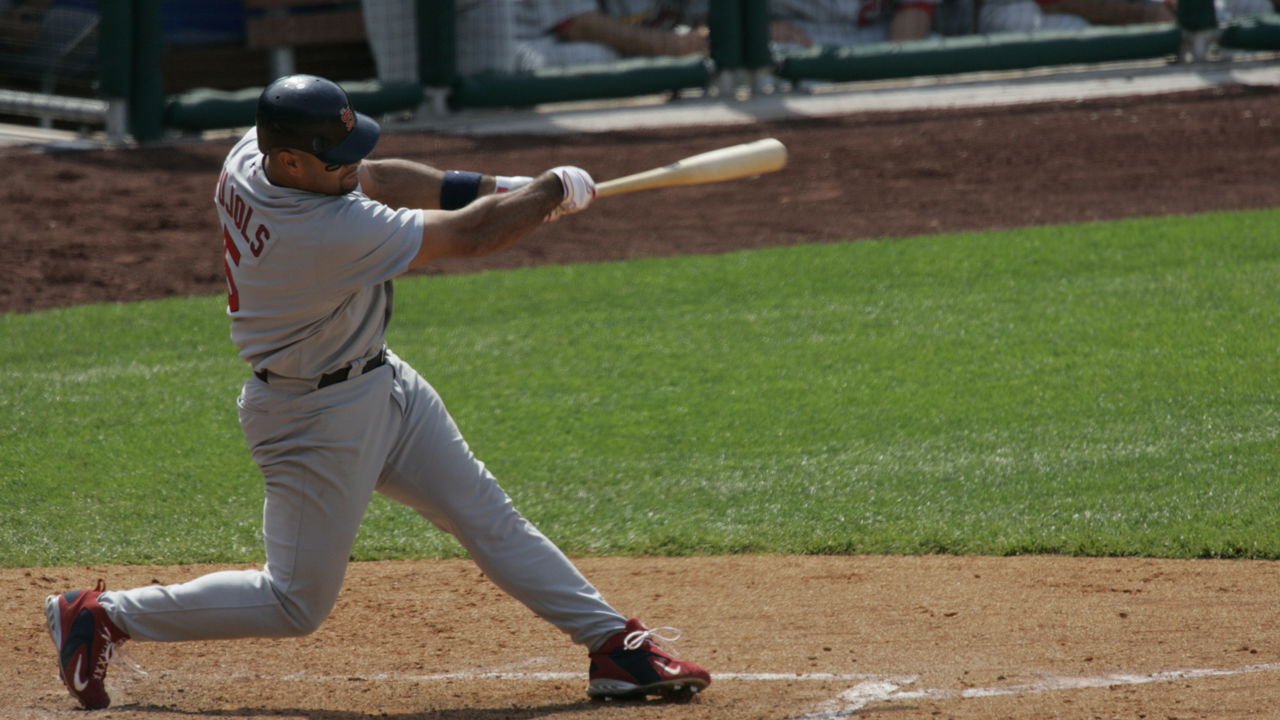
| AVG | R | HR | RBI | SB | OPS |
|---|---|---|---|---|---|
| .330 | 129* | 41 | 117 | 16 | 1.039 |
It took five seasons for Pujols to be called MVP, but it wasn't for lack of trying. Prince Albert's first MVP campaign was the fifth in a decade-long streak of at least 175 hits, 30 home runs, 100 RBIs, and a .300 average. The future Hall of Famer managed to beat out Braves slugger Andruw Jones by just five first-place votes to capture the honor. -- Perego
74. Hank Greenberg, Detroit Tigers (1935)
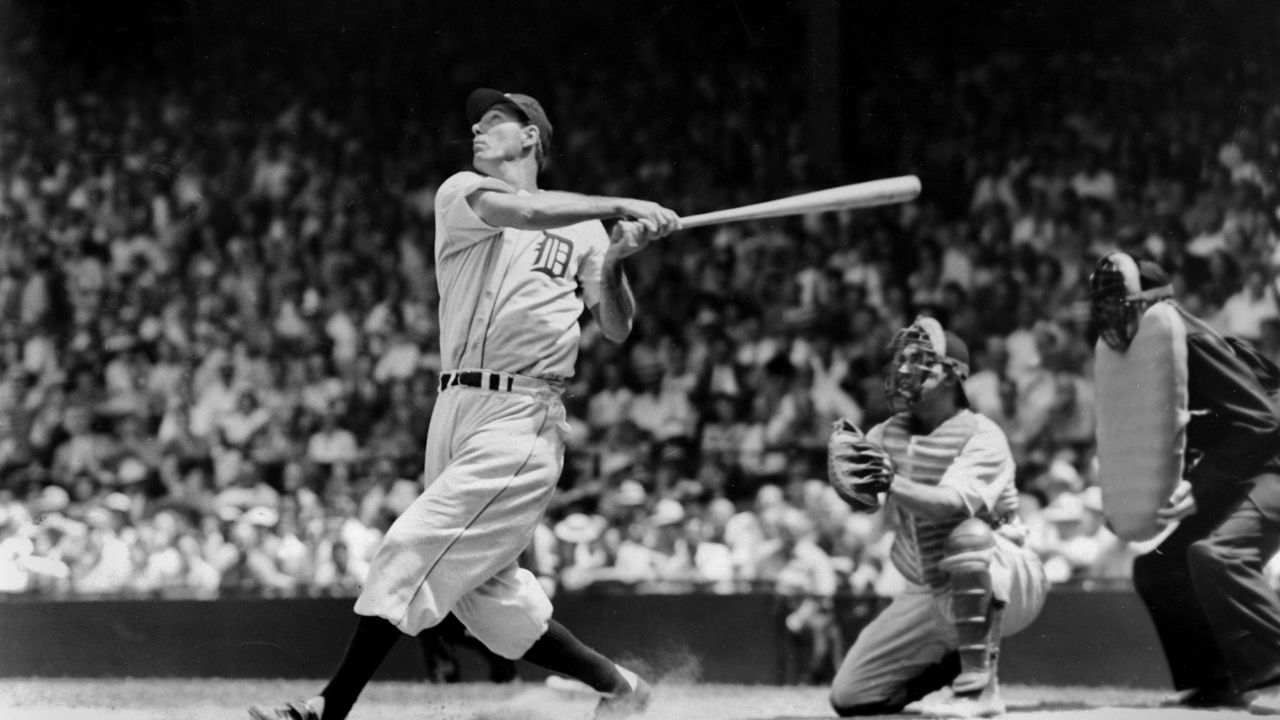
| AVG | R | HR | RBI | SB | OPS |
|---|---|---|---|---|---|
| .328 | 120 | 36* | 168* | 4 | 1.039 |
Ah, the year that Wes Ferrell didn't win. Not to take away from Greenberg, who put up a stellar 1.039 OPS and - somehow - batted in 168 runs on his league-leading 36 home runs, but Ferrell had a .960 OPS that year with seven home runs and 32 RBIs. If you think that's underwhelming, consider that Ferrell was actually a pitcher who also went 25-14 with a 134 ERA+ over a whopping 322 1/3 innings. -- Bradburn
73. Mike Schmidt, Philadelphia Phillies (1981)
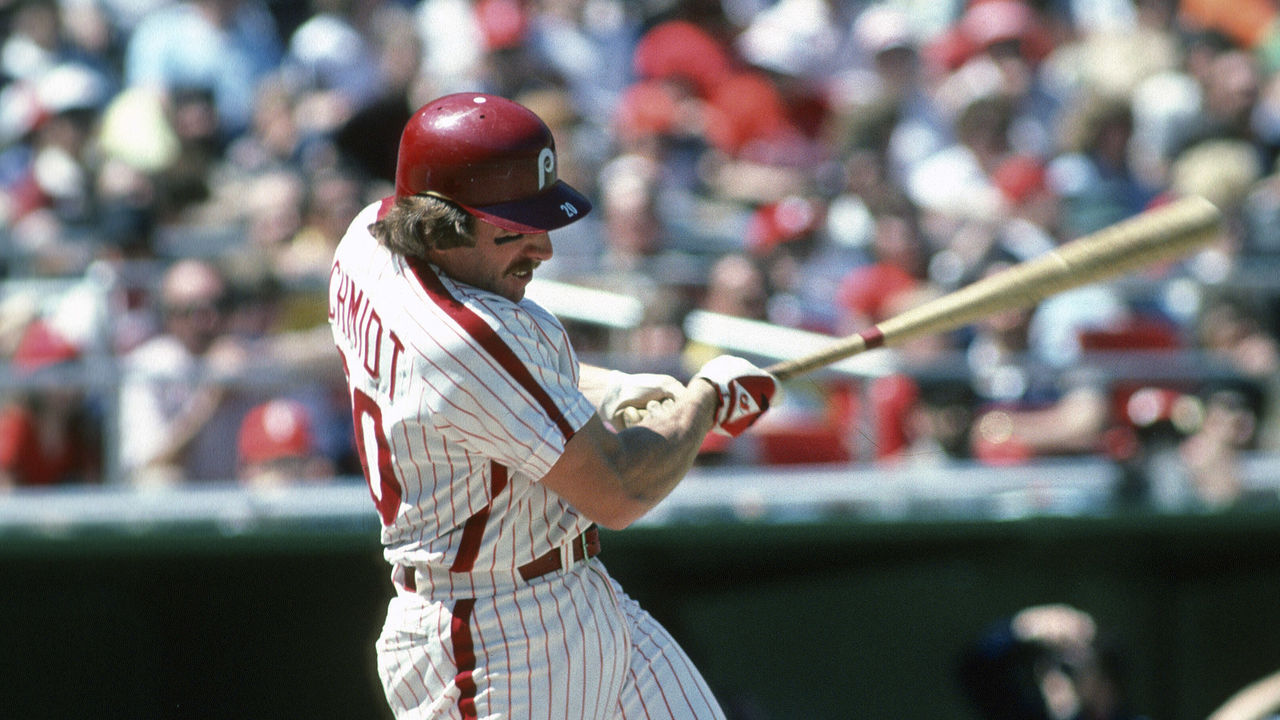
| AVG | R | HR | RBI | SB | OPS |
|---|---|---|---|---|---|
| .316 | 78* | 31* | 91* | 12 | 1.080* |
Though an eight-week players' strike in the middle of the season depressed his counting stats, Schmidt was actually better, on a per at-bat basis, in 1981 than he was the year prior, when he was the unanimous choice for NL MVP. Over the course of two half-seasons, Schmidt set career-highs in OBP (.435) and slugging percentage (.644) in 1981, and his 198 OPS+ would stand as the second-highest of the 1980s. -- Birenbaum
72. Clayton Kershaw, Los Angeles Dodgers (2014)
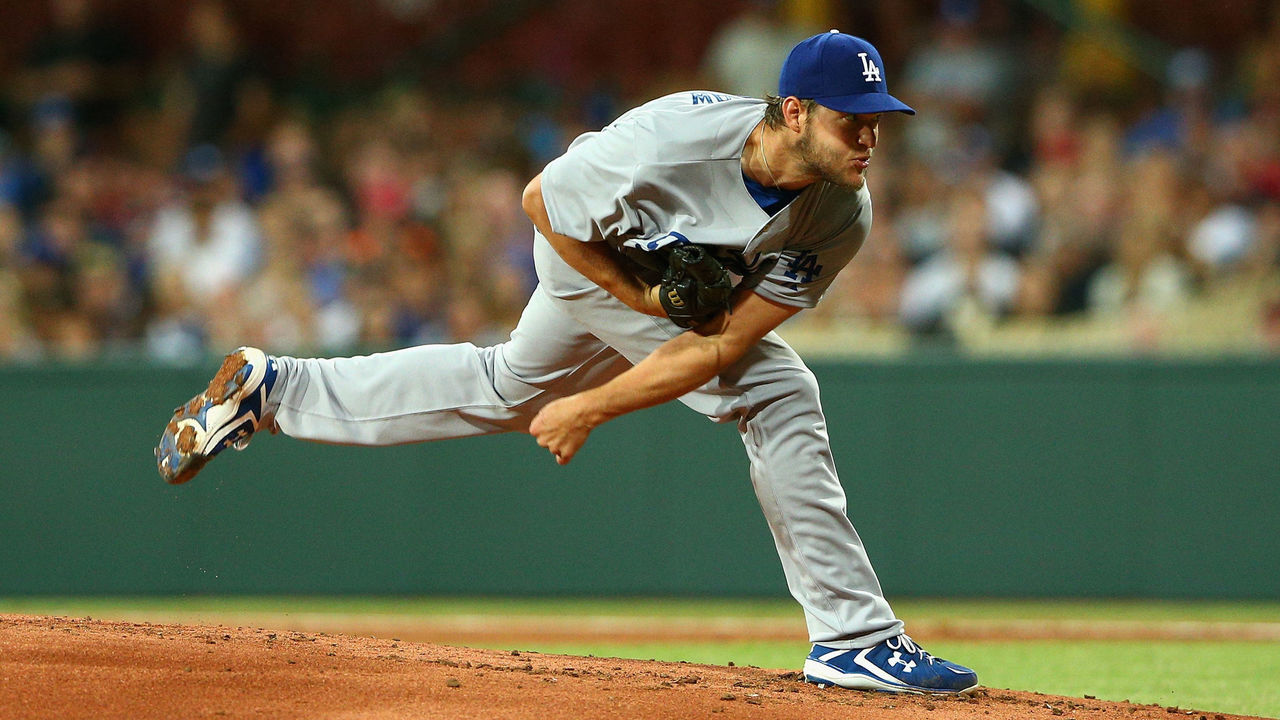
| W | L | ERA | WHIP | K |
|---|---|---|---|---|
| 21* | 3 | 1.77* | 0.86* | 239 |
It's not too often a pitcher takes home MVP honors, but Kershaw's 2014 campaign was certainly deserving. The Los Angeles Dodgers ace was worth 8.0 WAR after winning 21 games and recording an ERA+ of 197. Six of Kershaw's 27 starts were completed in full and he allowed just 31 walks and nine home runs en route to his first best-player award. -- Mcwilliam
71. Eddie Collins, Philadelphia Athletics (1914)
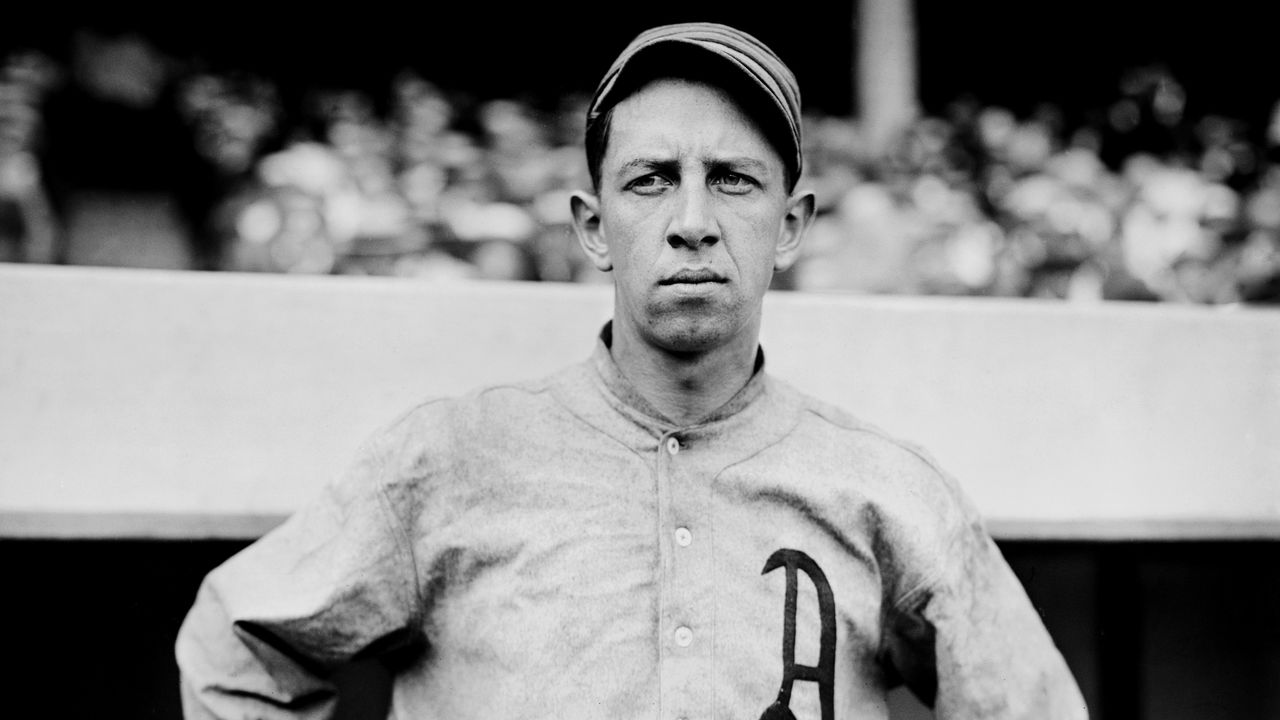
| AVG | R | HR | RBI | SB | OPS |
|---|---|---|---|---|---|
| .344 | 122* | 2 | 85 | 58 | .904 |
Performances from the dead-ball era can sometimes be overlooked due to recency bias, but Collins' impact on the game deserves due credit. Collins was one of the hardest outs in baseball for almost 20 years, and proved that in 1914 by recording 181 hits, scoring 122 runs, and stealing 58 bases. He only belted two home runs but struck out in just 4.7 percent of his at-bats. -- Perego
70. Dick Allen, Chicago White Sox (1972)
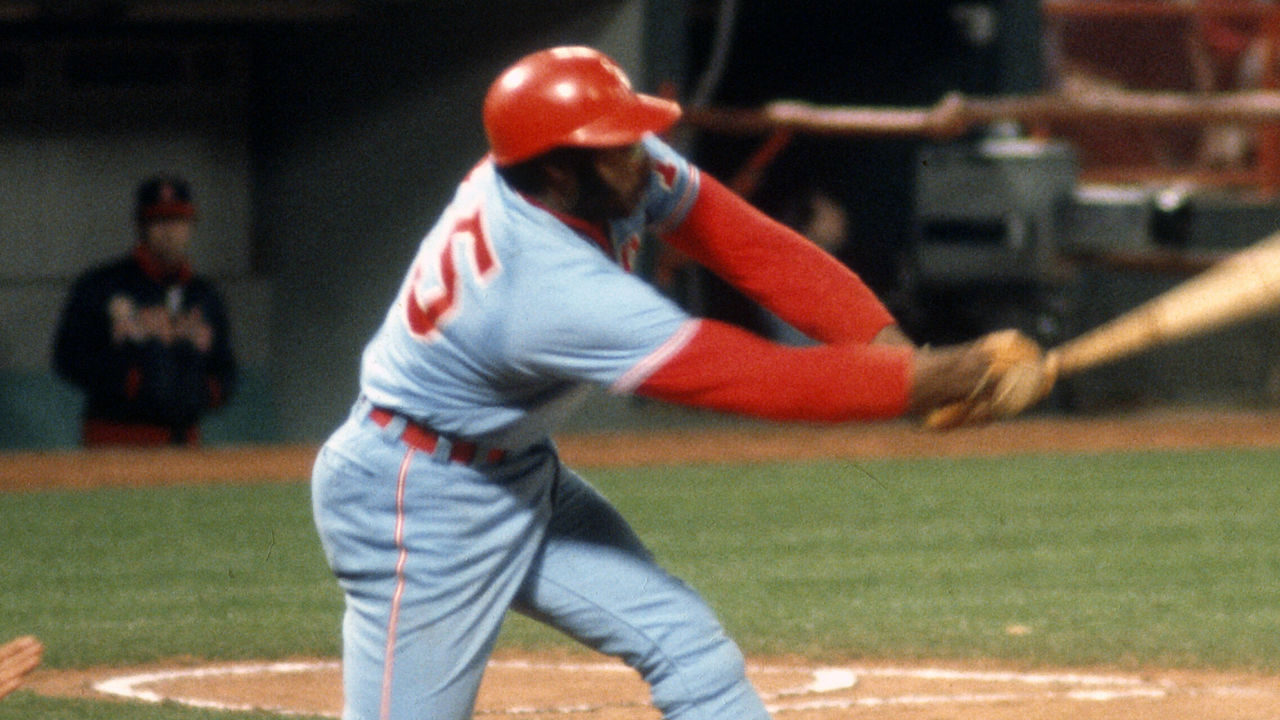
| AVG | R | HR | RBI | SB | OPS |
|---|---|---|---|---|---|
| .308 | 90 | 37* | 113* | 19 | 1.023* |
One of the more underrated power hitters of his time, Allen took his legacy to new heights in 1972 by exhibiting that his power wasn't his only form of production. Along with leading the AL in home runs and RBIs, Allen led the entire MLB in OBP (.420) and OPS (1.023) in what proved to be arguably the greatest season of his decorated 15-year career. -- Perego
69. Miguel Cabrera, Detroit Tigers (2012)
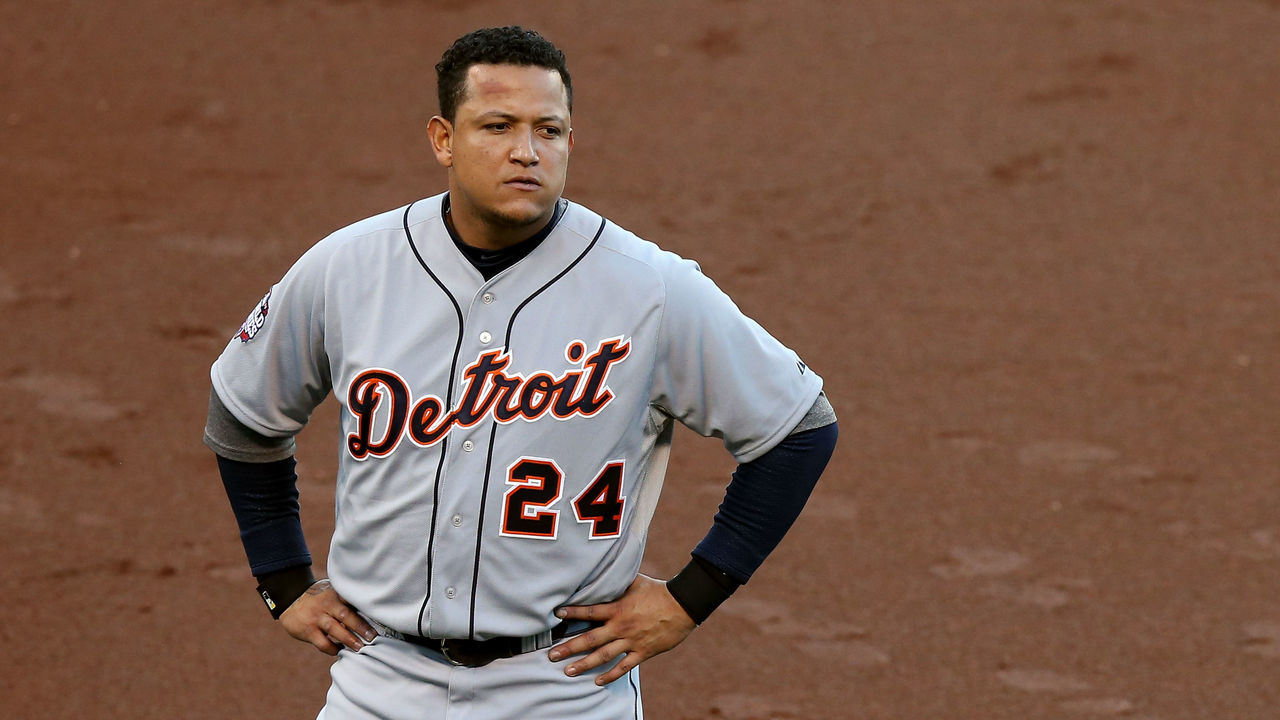
| AVG | R | HR | RBI | SB | OPS |
|---|---|---|---|---|---|
| .330* | 109 | 44* | 139* | 4 | .999* |
Miggy capped off a remarkable season with his first MVP and the AL Triple Crown in 2012. Cabrera landed 22 of 28 first-place votes to beat out Trout in a year that saw the Tigers star lead the AL with 44 homers, 139 RBIs, and a .330 average, becoming the first Triple Crown winner since Carl Yastrzemski in 1967. Some argued Trout actually had the better season, however, as the Angels rookie finished with 2.9-higher WAR. -- Wile
68. Jason Giambi, Oakland Athletics (2000)
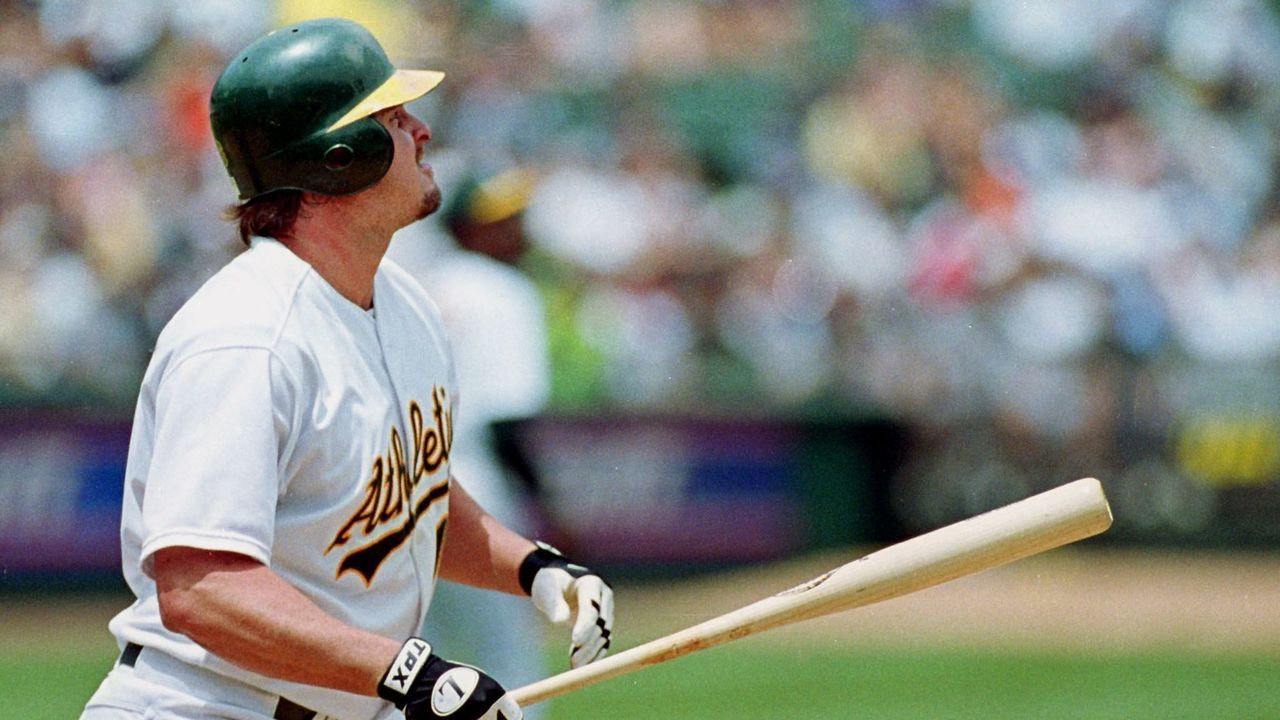
| AVG | R | HR | RBI | SB | OPS |
|---|---|---|---|---|---|
| .333 | 108 | 43 | 137 | 2 | 1.123 |
Years before Giambi donned a "Selleck" for the Yankees, he was swatting bombs and getting on base at an absurd rate. While Alex Rodriguez had a better overall season - and Giambi improved in many ways the following year - he was the biggest on-base threat in the game during his MVP season in 2000. That’s right, he had a higher OBP than Barry Bonds. -- Wilson
67. Johnny Bench, Cincinnati Reds (1972)
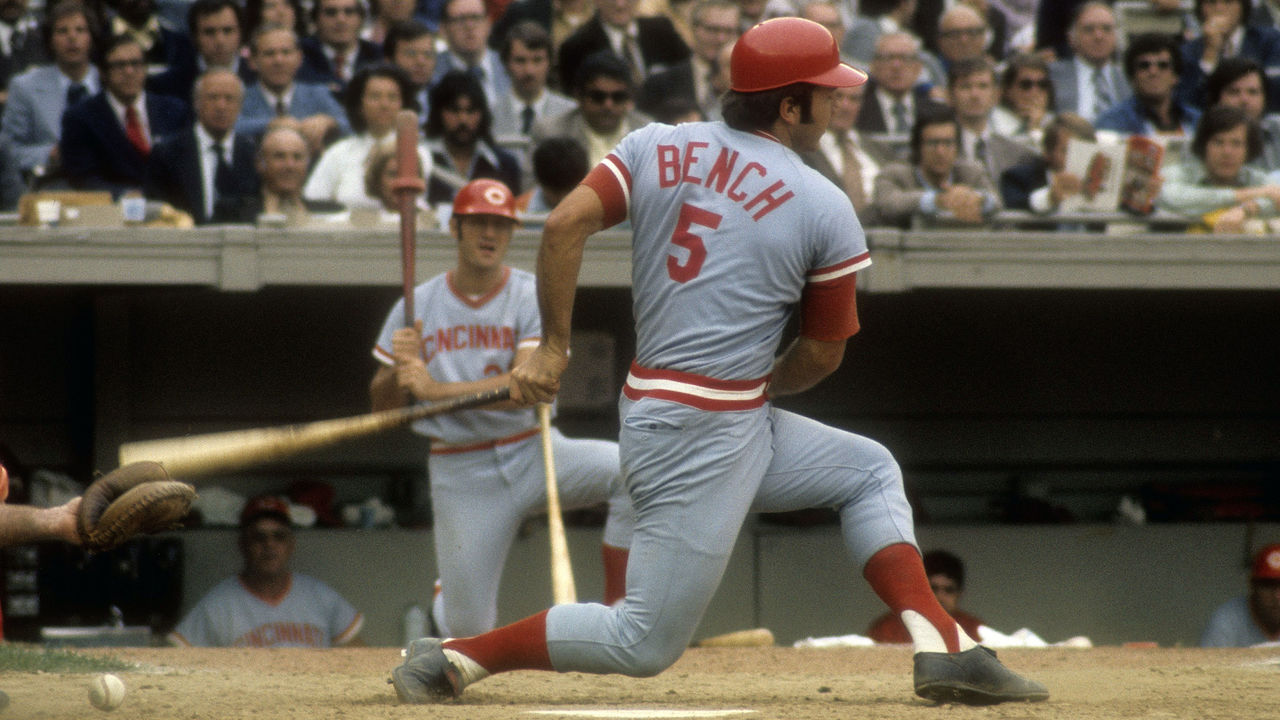
| AVG | R | HR | RBI | SB | OPS |
|---|---|---|---|---|---|
| .270 | 87 | 40* | 125* | 6 | .920 |
Another 40-homer season in 1972 gave the greatest catcher of them all his second MVP in three years. Incredibly, Bench was even more valuable defensively in '72 - 2.4 defensive WAR to '70's 1.8 - and he topped all backstops by throwing out 56 percent of would-be base-stealers. It's not a coincidence the Reds won pennants in both of Bench's MVP seasons. -- Sharkey-Gotlieb
66. Miguel Cabrera, Detroit Tigers (2013)
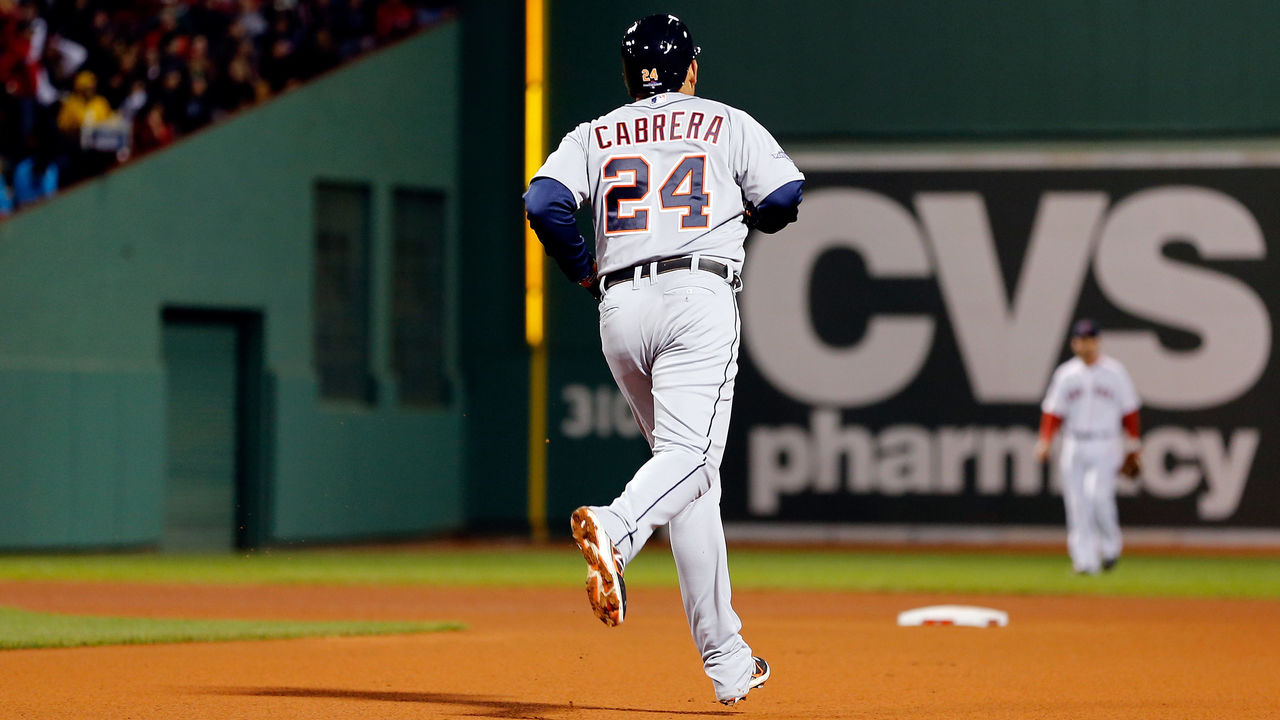
| AVG | R | HR | RBI | SB | OPS |
|---|---|---|---|---|---|
| .348* | 103 | 44 | 137 | 3 | 1.078* |
Miggy followed up his 2012 MVP season - highlighted by the first triple crown by a position player since 1967 - with another dominant hitting performance. While Miggy's WAR lagged behind due to bad defensive play, the 30-year-old posted the best single-season wRC+ since Bonds in 2004 and until Bryce Harper in 2015. -- Bradburn
65. Joe Mauer, Minnesota Twins (2009)
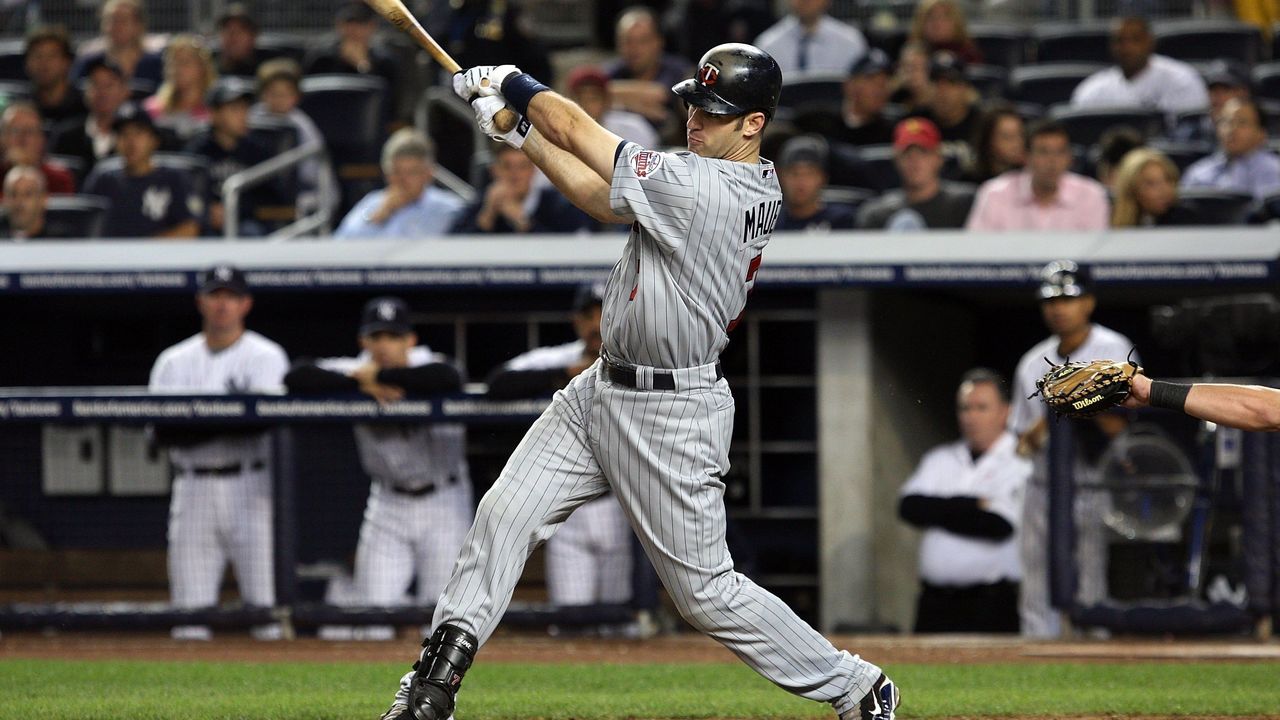
| AVG | R | HR | RBI | SB | OPS |
|---|---|---|---|---|---|
| .365* | 94 | 28 | 96 | 4 | 1.031* |
Remember that "Well played, Mauer" bit? This season was responsible for that. In 2009, fresh off his second batting title in a three-year span, Mauer authored one of the finest seasons by a catcher since integration, putting up 7.8 WAR by tapping into a hidden power reserve that turned him from a terrific contact hitter into the league's most potent offensive threat. -- Birenbaum
64. Vida Blue, Oakland Athletics (1971)
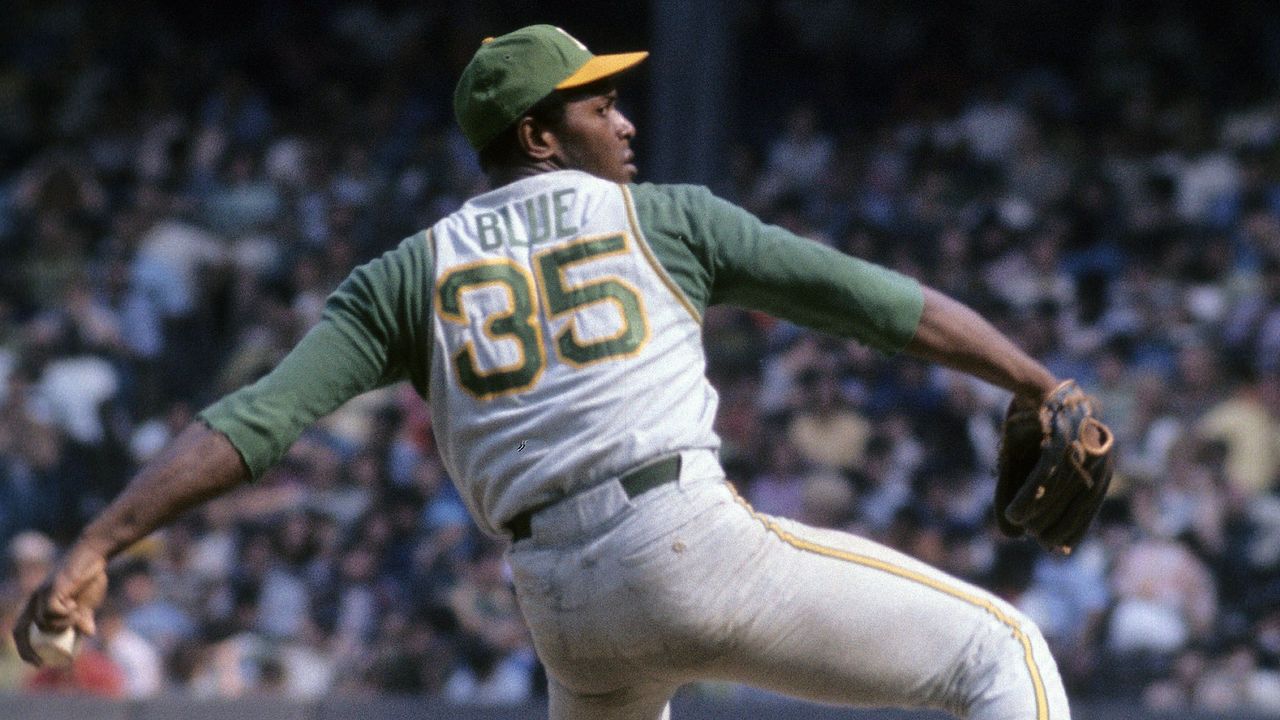
| W | L | ERA | WHIP | K |
|---|---|---|---|---|
| 24 | 8 | 1.82* | 0.95* | 301 |
An MVP award is difficult enough for a pitcher, but to do it at a tender 21-years-old is simply remarkable. Vida Blue decimated opposing hitters in 1971 with 301 strikeouts over 312 innings on his way to throwing 24 complete games in 39 starts. A crisp 183 ERA+ and 0.952 WHIP are just a few more indicators of his dominance, and earning 24 wins for the A's isn't bad, either. -- Perego
63. Josh Hamilton, Texas Rangers (2010)
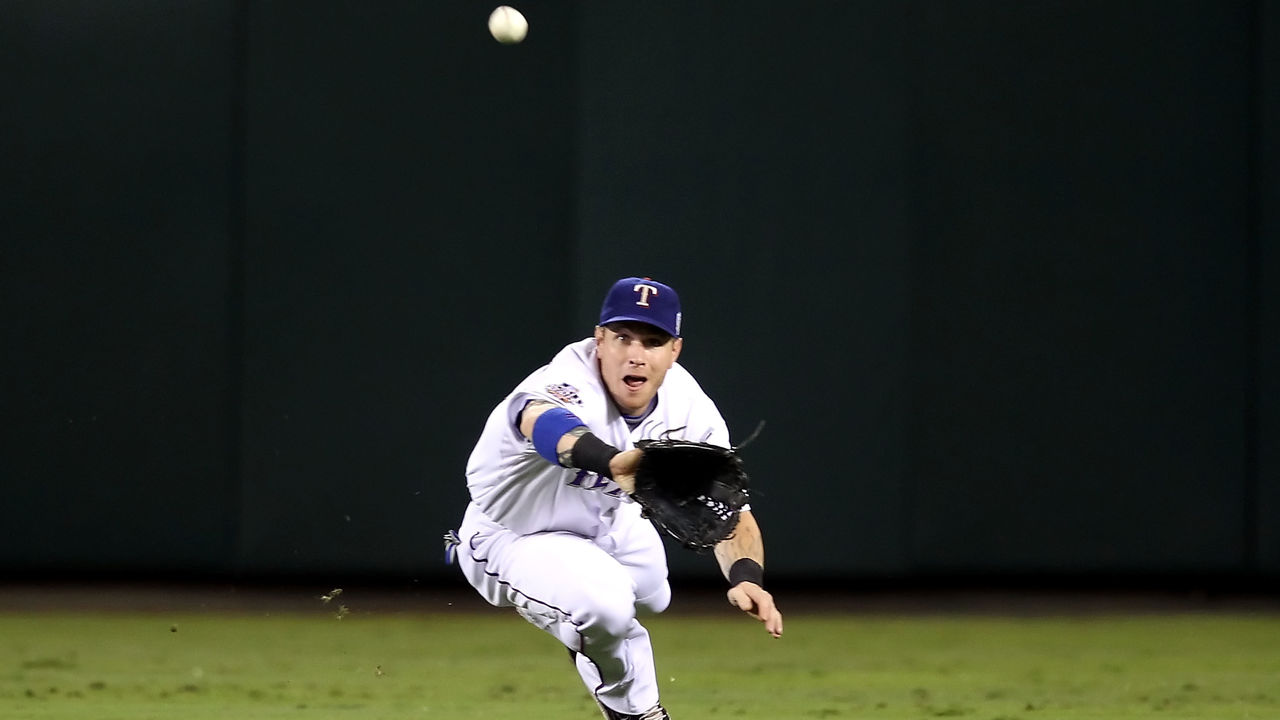
| AVG | R | HR | RBI | SB | OPS |
|---|---|---|---|---|---|
| .359* | 95 | 32 | 100 | 8 | 1.044* |
Hamilton's lone MVP campaign is as uplifting as it is heart-breaking. The 29-year-old's .359/.411/.633 slash line over 133 games is a reminder of how dominant Hamilton could be, and how fleeting his health was. He would crack the top five in MVP voting once more in his career before fizzling out, leaving baseball fans to wonder what could have been. -- Bradburn
62. Mike Schmidt, Philadelphia Phillies (1980)
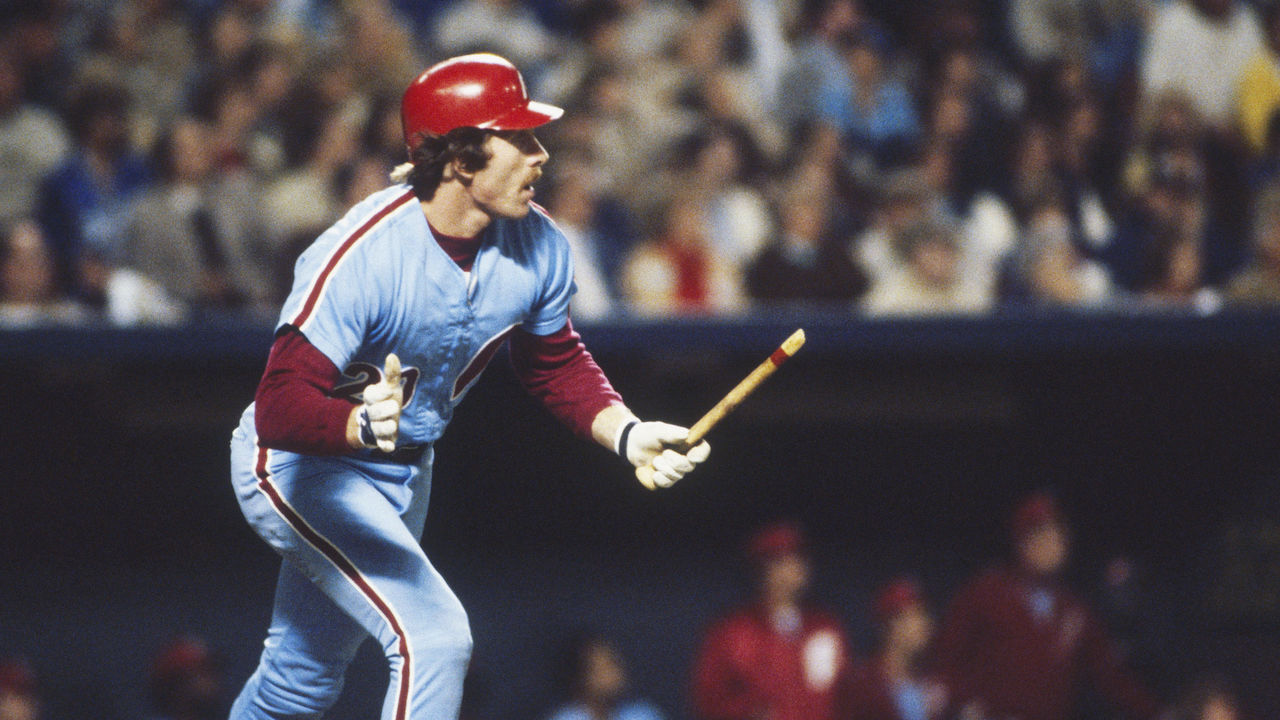
| AVG | R | HR | RBI | SB | OPS |
|---|---|---|---|---|---|
| .286 | 104 | 48* | 121* | 12 | 1.004* |
After inexplicably finishing 13th in NL MVP voting the season prior, Schmidt was a man possessed in 1980, setting career highs in WAR, homers, and runs batted while also winning his fifth consecutive Gold Glove to propel the Phillies back into the postseason (and, ultimately, their first-ever World Series championship). That, kids, is how you get yourself an MVP award. -- Birenbaum
61. George Foster, Cincinnati Reds (1977)
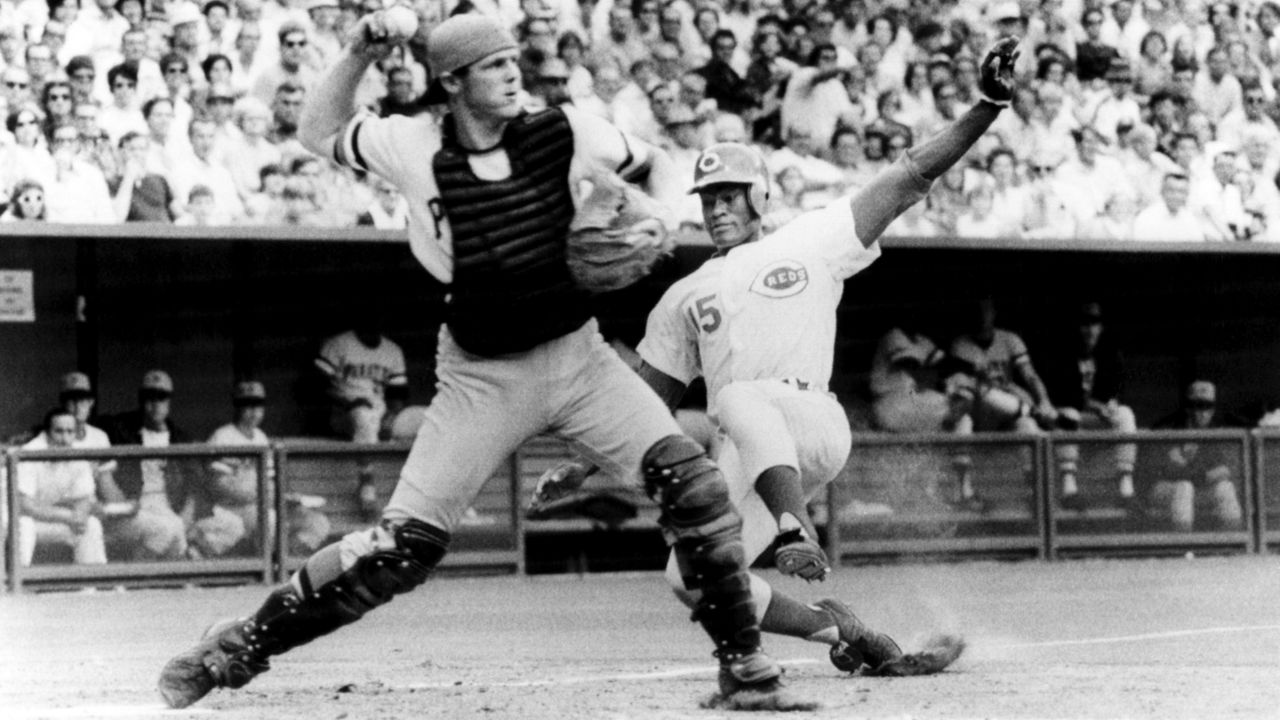
| AVG | R | HR | RBI | SB | OPS |
|---|---|---|---|---|---|
| .320 | 124* | 52* | 149* | 6 | 1.013* |
Foster became just the 17th player in league history - and the first in more than a decade - to reach the 50-homer plateau when he knocked 52 balls out of the park in 1977. An underappreciated cog of the Big Red Machine, the '77 Reds were one of the few iterations to miss the postseason during their dynasty, through no fault of the 28-year-old outfielder. -- Bradburn
(Photos courtesy: Getty Images)